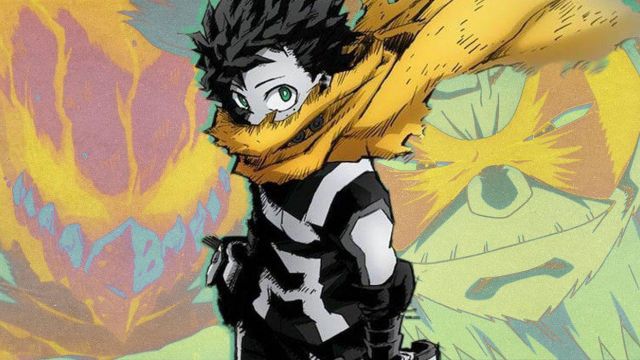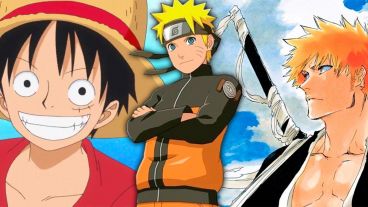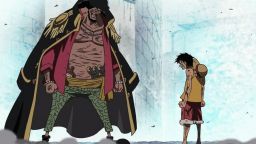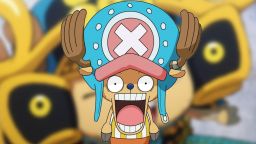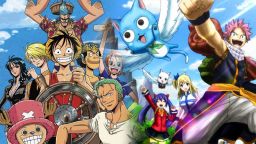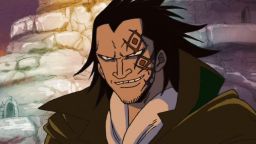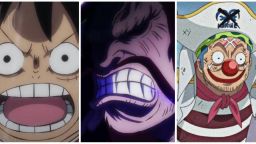The My Hero Academia anime series has always been about the eternal clash of good vs evil, with caped pro heroes fighting to defend society and villains like Tomura Shigaraki striving to tear down society and rebuild it from the ground up. However, hero society proved more frail than anybody had anticipated, and Izuku Midoriya eventually turned rogue to complete the conflict on his own terms. Hero society had failed him, but he could still fight.
The vigilante Deku persona, or "Dark Deku," reflected both Deku's altruistic, driven attitude and the apparent flaws of the pro hero industry. The Dark Deku arc made its point, but some fans believe that vigilante Deku should have stayed around longer to investigate these societal and personal issues.
Vigilante Deku's Untapped Potential For Personal Growth
Vigilante Deku's very nature and existence were a comment on both Izuku Midoriya as a person and hero society as a whole in My Hero Academia. Personally, vigilante Deku represented Deku's fierce commitment to keeping all his classmates and friends safe, since Tomura Shigaraki could track him down to begin their inevitable final battle. Deku didn't want his classmates getting caught in the crossfire or being held hostage, so Deku went rogue as a vigilante to face this threat alone. However, his classmates objected, since they had come too far with Deku to just watch the final battle from a distance. They were being treated like civilians, but they were actually Deku's equals and allies. So, they fought vigilante Deku to remind him of that fact.
Deku had plainly taken his classmates for granted at that point, Quirks and all, and felt as though he didn't need them any longer. Or, at the very least, that's what he felt deep inside, while rationalising it as keeping his buddies safe as Tomura Shigaraki pursued him down. Deku clearly didn't trust his peers, even powerhouses like Shoto Todoroki and Katsuki Bakugo, to support him in the last fight, and he even mocked them. Deku was similarly overestimating One For All, believing that he could save the day on his own.
Vigilante Deku needed his classmates and their Quirks to win, as the manga's current battle shows, and vigilante Deku was being highly immature, disregarding his classmates' strength and commitment as young heroes. He took them and One For All for granted, and only by losing to his classmates could Deku truly appreciate them and learn some humility. That indeed happened, but this arc was concluded too soon for these personal themes to be explored in full detail, and it limited Deku's personal growth. Deku's personal experience was little more than "sorry, everyone, I got carried away." A lengthier vigilante Deku arc could have forced Deku to realize that deep down, he didn't trust or respect his classmates enough to help him fight Shigaraki, and that conversation could have spoken volumes about every class 1-A student and their relationships to each other as trainee heroes and friends.
Vigilante Deku Says Something About Hero Society
Deku's existence and nature are also a critique of the hero-centric culture that Izuku Midoirya pledged to defend and safeguard. Hero society values peace, stability, and the rule of law, but this comes at a cost that society's rejects must bear. Quirks did not equalise society; instead, they made it more unequal than ever, and quirk-based discrimination became a reality that pro heroes could never eradicate. Outcasts were formed by necessity in a hero society, and those people would, of course, seek retribution because they have little left to lose. All of this came crumbling down as the final battle with the Paranormal Liberation Front started, with heroes suffering large casualties and shocking personal revelations undermining society's faith in heroes.
In this context, few heroes were able to help Deku fight Tomura Shigaraki and other high-profile villains like Muscular, so Deku adopted a loner mentality to keep himself committed to this huge burden. Normally, entire groups of beloved heroes would assemble to save the day, as they did during the Bakugo rescue operation in Season 3, but not this time. Back then, Midoriya didn't have to take it upon himself to save Bakugo with extreme force, hence no Dark Deku even with such serious personal stakes. Hero society took care of the rest, but that's over now. Pro heroes are dying, quitting, or getting injured all over Japan, and Deku can't stand seeing any more casualties from pro heroes or his classmates. Hence his Dark Deku persona, determined to embody all hero society within himself because all the other heroes and students have failed.
The My Hero Academia anime did touch on this, but with the vigilante Deku arc being so short, the full scope of hero society's failure and the increasing anarchy was not seen. It was mostly just mentioned or shown with a few brief scenes, so viewers had to fill in the gaps alone. Vigilante Deku represented Izuku Midoriya's loss of faith in his classmates and the pro hero industry alike, a bold new development in his personal arc that deserved more screen time. Vigilante Deku could have debated this with his classmates at length, which could have said much about everyone involved, but it was not to be. Yet it should have. History is being made in Japan, a dark and violent chapter in the saga of hero society, and vigilante Deku has the most to say about it – and the series should let him.
